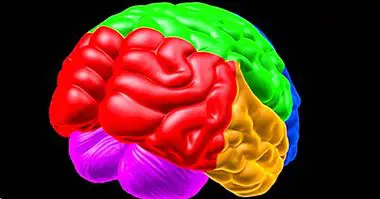The problem of the career of Psychology: a lot of theory but little practice
Psychology generates a lot of interest in the present, and studying the Degree in Psychology, on a personal level, can be one of the best experiences of life.
But in spite of how enriching it is to learn about the science of behavior and how interesting some of the subjects that are part of its academic program are, this race is impractical .
The problem of newly graduated psychologists
This becomes a serious problem when you have to deal with people and, in many cases, their emotional conflicts, because when you have to put yourself in front of a patient to perform therapy and you do not know what to do or how to do it, something is wrong (and not I say it myself, is what is heard in the halls of the faculty and is what recent graduates have).
Four years invested in the Degree, almost two years in the Master's Degree in General Health Psychology and a lot of money and time destined to train you so that you can not put into practice everything you have learned.
The dilemma of getting practical experience
Well, it's even more frustrating when you try to find work and nobody gives you the opportunity to practice as a psychotherapist. Because no matter how much you want to prove your worth and show everyone that you are good at what you are most passionate about, nobody gives you the opportunity to dedicate yourself to your vocation because you do not have enough professional experience.
It is a fish that bites its tail: you can not grow professionally because you do not have enough experience, but nobody gives you the possibility to get experience to continue growing and develop professionally.
Be prepared for the world of work
As Natalia Pimentel, a newly qualified general sanitary psychologist, says: "What worried me the most when I finished the Degree in Psychology and the Master's Degree in General Health Psychology was having studied so hard and spent so much time and money and feeling that I was half way to achieve what I had proposed: to be a psychologist. I felt that I was not completely competent and that I could not help my patients improve their well-being. "
Being competent in your job is not knowing how to do an end-of-degree project, nor reading hundreds of investigations , or to pass theoretical exams, or listen to many professionals in this field tell you what psychological therapy is. Being competent goes further: it is to see many practical cases, to participate in therapeutic practice, to have your own patients' agenda and to carry out therapy with them. In other words, it is not only studying a syllabus, but knowing how to mobilize all that learning and knowledge and put into practice your skills and all the internal and external resources that you have available to do your job well.

Lack of practice is a reality in university careers
All those who have studied the Degree in Psychology know what I am talking about, so surely many of you identify with this text and with what Natalia expresses below: "In these years of study we have filled the head of data, articles, theories and concepts that many times we will not use. And what really matters, which is practice, has a residual value in university education. "
In addition, Natalia adds: "It is not a very pleasant feeling to finish the race without having any idea what you should do in the job for which you have been trained. Because this causes you to get discouraged and feel insecure when applying everything you have studied. What is much". Definitely, a very worrying reality, shared by thousands of newly graduated psychologists .
Something must change in the current training model
Something must change in the way that the university institutions have to educate us. It can not be that after studying for 5 or 6 years (this includes the Degree and the Master if you approve the first one), you have to learn to work. What is the use of having so much general knowledge if nobody teaches you how to really perform your job as a psychologist?
At the Mensalus Institute of Barcelona, aware of this reality, they offer the "Master in Integrative Psychotherapy", a totally practical training , designed for those who wish to acquire the necessary functional skills to be able to perform professional work as a psychologist. This training is ideal for students who want to improve their self-confidence and show others the ability and aptitude they have to do what they like best: be psychotherapists.
There are many graduates who at the end of the Degree in Psychology or the General Master's Degree in Sanitation say that they are not prepared to put into practice all the learning they have acquired throughout their years of study, so this postgraduate course was designed to compensate this reality that so many psychologists experience.
What is the "Master of Integrative Psychotherapy" of Mensalus Institute
This Master is taught in person in Barcelona and is an opportunity that we can find in the vast majority of university institutions, because the Mensalus Institute is a psychological assistance center, considered one of the best in Spain, so it has a large number of patients with whom students can experience clinical practice.
This fact provides its students the opportunity to act as psychotherapists with their own patients (facilitated by the center). In addition, they also have a teacher who supervises their work, so that in this way they can improve their practical skills and safety and self-confidence, which helps them to develop and perfect their own psychotherapeutic style. . From the first day, they have the opportunity to learn from other psychotherapists with the viewing of cases live through a unidirectional glass. Without a doubt, a truly enriching experience.
To make matters worse, this training has different accreditations and is endorsed by different agencies and state institutions: General Council of Psychology of Spain, the Official College of Psychology of Catalonia and the SEIP (Spanish Society for the Integration of Psychotherapy). The course lasts 1 year (60 ECTS credits) and aims to train their students so that they can enter the labor market with maximum guarantees. The registration period ends on June 15.
If you want more information about this training, you can click on this link.



















